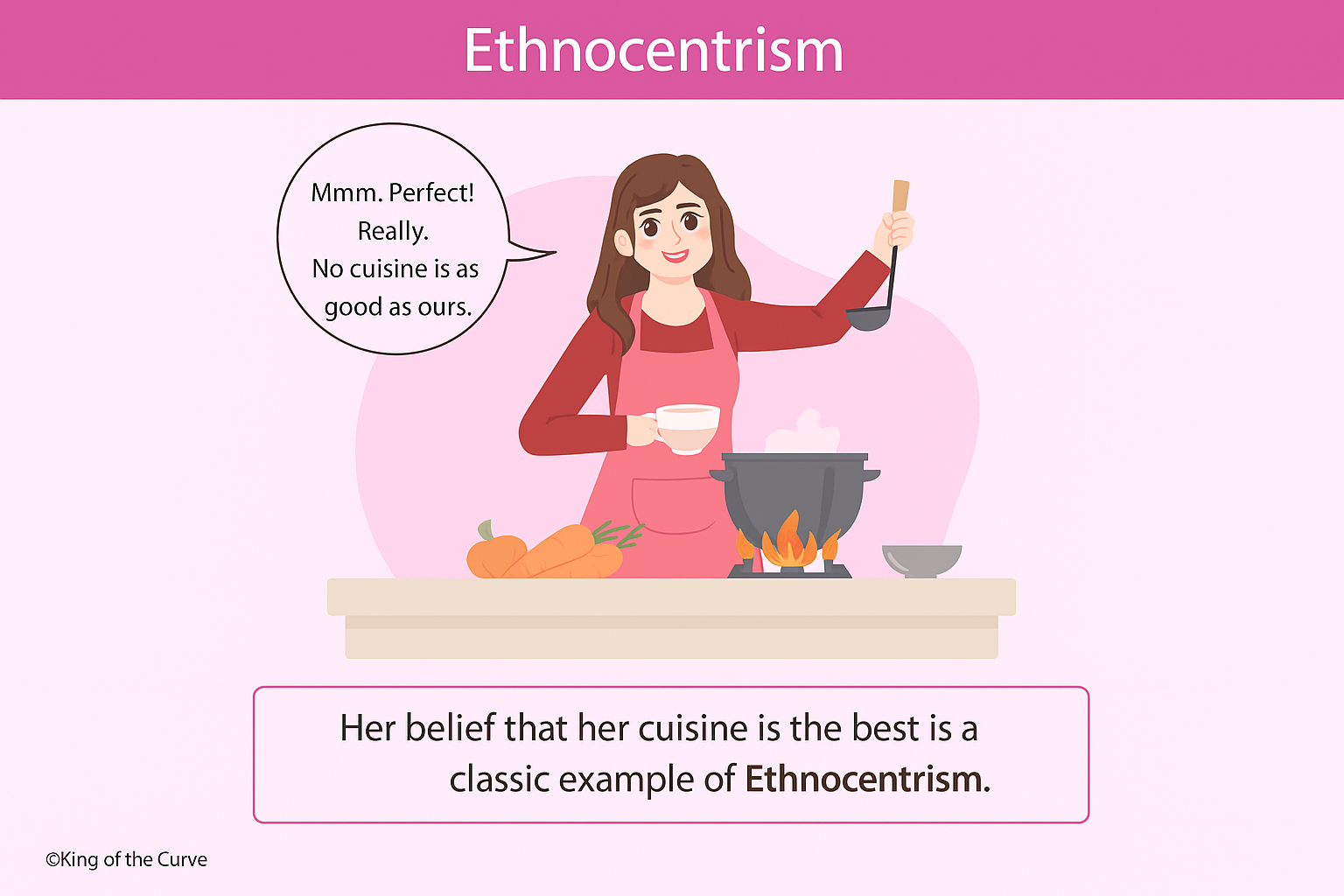🌍 Understanding Ethnocentrism: Why It Matters for the MCAT
Ethnocentrism is the tendency to view your own culture or group as superior to others. On the MCAT, it's a high-yield psychology/sociology term tested in the context of cultural attitudes, prejudice, and social interaction.
At its core, ethnocentrism is not always malicious — it can be subtle, such as assuming that your cultural norms are “natural” or “better.”
👩🍳 Example Explained
In the image above, the woman says:
"Mmm. Perfect! Really. No cuisine is as good as ours."
This is a textbook example of ethnocentrism — judging another culture’s cuisine by the standards of her own and assuming it’s inherently superior.
📘 How Ethnocentrism Appears on the MCAT
The AAMC often tests this concept in relation to:
Cultural relativism vs. ethnocentrism
Biases in cross-cultural healthcare
Globalization and migration case studies
Health disparities stemming from value-based judgments
🔍 Comparison Table: MCAT Key Concepts
| Term | Definition | MCAT Example |
|---|---|---|
| Ethnocentrism | Judging other cultures by your own standards | Thinking your nation’s food, dress, or customs are the “right” way |
| Cultural Relativism | Understanding cultures through their own values | Evaluating a custom within the context of that culture |
| In-group bias | Favoring people from your own group | Assuming members of your culture are more moral or trustworthy |
| Stereotyping | Oversimplified generalizations about other groups | Assuming all people from a culture act the same |
🧠 KOTC Quick Tip
Ethnocentrism = "My way is the right way."
Cultural relativism = "Let’s understand their way."
Use this distinction in passage-based questions where you're asked to evaluate a researcher or healthcare worker’s attitude.
📈 Why This Matters
Ethnocentrism can lead to:
Miscommunication in healthcare settings
Cultural insensitivity in global health
Prejudice and misunderstanding in society
Recognizing it helps future physicians become more culturally competent and aware of implicit bias — key competencies on the MCAT and in medical school interviews.
🧠 Study Smarter with King of the Curve
KOTC makes MCAT Psychology/Sociology prep easy with:
🎨 1000+ custom visuals
🧪 Adaptive learning + Q-bank
🧠 Timed drills & mastery tracking
🎮 Gamified multiplayer quizzes
📲 Start FREE at
kingofthecurve.org/free-lifetime
Frequently Asked Questions (FAQs)
-
Aim for 4-6 focused hours, ensuring you incorporate breaks to avoid burnout.
-
Practice mindfulness techniques, take practice exams under realistic conditions, and maintain a balanced lifestyle.
-
Set short-term goals, seek support from mentors, and reward yourself for small achievements.
-
Regular exercise improves focus, reduces stress, and enhances overall mental clarity.
-
KOTC offers personalized learning tools, gamification features, and adaptive question banks to help students stay on track without burnout.


